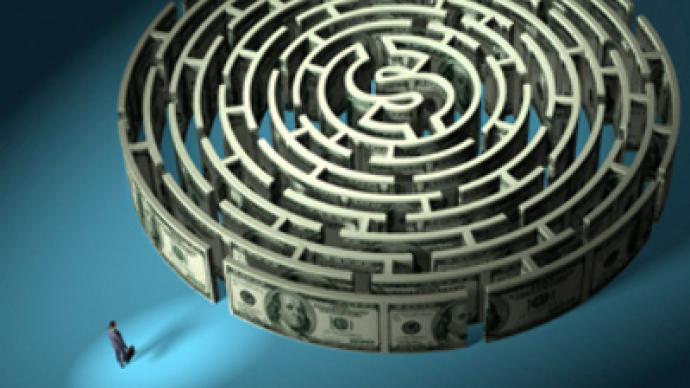The global financial crisis and economic downturn, one year on: Deutsche Bank

With the global financial crisis and ensuing economic slowdown passing its first anniversary, Business RT spoke with Yaroslav Lissovolik, Chief Economist at Deutsche Bank, Russia about how the Russian economy has fared.
RT: How successfully has Russia handled a year of the global economic crisis?
YL: It’s obvious that Russia has suffered dramatically with the real sector falling 10% in 1Q 2009. And the stock market was one of the biggest losers in the developing world. Actually, the current crisis has given us a very important lesson: Russia needs to develop its own financial market with more institutional and household investors there, which will make the market more stable and reduce its dependence on oil and gas revenues, and external shocks as well.
In fact, I think, in some aspects Russia performed much better than other developing countries. Take, fiscal policy, for example. Our Government proved wise enough not to spend its reserves until the crisis broke out, and that money gave our country great advantage.
RT: Which Russian industries suffered the most in the crisis and which proved stable enough?
YL: Obviously, automobile industry and metallurgy have borne the biggest losses, together with the construction sector, which before the crisis was the main driver of Russia’s economy.
Alternatively, natural monopolies, agriculture and mining industries have fared much better than others, with oil and the electric power sector also well afloat. The reason is simple: they just serve the whole economy the basic things, which means demand will always be there.
RT: When do you think the Russian economy will show clear signs of a rebound?
YL: I think, already in 3Q 2009 the Russian economy will start stabilizing and show some improvements, not only month on month, but also in year on year terms, which will last until the end of this year. And consumer demand, I suppose, will become the main driver. However, we expect Russia’s economy to decline some 4 or 5% this year with about a 2% growth in 2010.
RT. How can Russia speed up the recovery?
YL: Firstly, Government expenditure should become more targeted. I mean, it’d better support the most damaged industries in particular, like the automobile industry or construction. But, before that, it’s necessary to conduct preparation work, say, a price correction in the housing market. Rouble devaluation is not the thing we need, I think, but lower inflation and interest rates could really help to revive the credit system. And this is actually what our Government is aimed at the moment.












